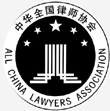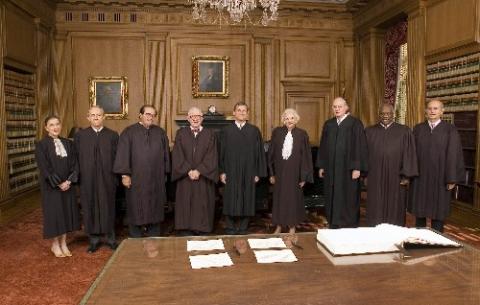上海婚姻律师
你在这里
Hearsay Exceptions - Declarant’s Availability Immaterial
- Hearsay Exceptions - Declarant’s Availability Immaterial
- Present State of Mind
A statement of a declarant’s then - existing state of mind, emotion, sensation, or physical condition is admissible. [Fed. R. Evid. 803(3) ] The exception is based on the need to obtain evidence as to the declarant’s internal state of mind or emotion. It must usually be made under circumstances of apparent sincerity. The statement is often offered to establish the intent of a person, either as a fact to be proved as such (domicile, criminal intent) or as a basis for a circumstantial inference that the intent was probably carried out.
- Excited Utterances
A declaration made by declarant during or soon after a starting event is admissible. The declaration must be made under the stress of excitement produced by the starting event. The declaration must concern the immediate facts of the starting occurrence. [Fed. R. Evid. 803(2) ] The spontaneousness of such a declaration and the consequent lack of opportunity or reflection and deliberate fabrication provide an adequate guarantee of its trustworthiness.
- Declarations of Physical Condition
- Present Bodily Condition—admissible
Generally, declarations of present bodily condition are admissible as an exception to the hearsay rule,even though they are not made to physician. They may be made to a spouse,relative, friend, or any other person. Of course, declarations made to a physician are admissible.
[ Fed. R. Evid. 803(3) ] Such declarations relate to symptoms,including the existence of pain. Because they are contemporaneous with the symptoms,they are more reliable than present testimony based upon recollection.
- Past Bodily Condition—Admissible If to Assist Diagnosis or Treatment
- Business Records
Any writing or record,whether in the form of an entry in a book or otherwise,made as a memorandum or record of any act, transaction, occurrence, or event is admissible in evidence as proof of that act, transaction, occurrence, or event, if made in the regular courts of any business; and if it was the regular course of such business to make it at the time of the act, transaction, occurrence, or event or within a reasonable time thereafter.
- Past Recollection Record
Witness are permitted to refresh their memories by looking at almost anything—either before or while testifying. This is called present recollection received. However, if the witness’s memory cannot be revived, a party may wish to introduce a memorandum that the witness* made at or near the time of the event. Use of the writing to prove the facts contained thereirwtaises a hearsay problem; but if a proper foundation can be laid, the contents of the memorandum may be introduced into evidence under the past recollection record exception to the hearsay rule. The rationale is that a writing made by an observer when the facts were still fresh in her mind is probably more liable than her testimony on the stand—despite the fact that cross - examination is curtailed. For admissibility requirements.
- Official Records and Other Official Writings
- Public Records and Reports
The exception for public records and report is necessary to avoid having public officers have their jobs constandy to appear in court and testify to acts done in their official capacity,especially since the entrant could probably add nothing to the record. Also, such records are presumed to be trustworthy because officials are under a duty to record properly that which they do.
- Records of Vital Statistics
Records of births, deaths, and marriages are admissible if the report was made to a public office pursuant to requirement of law.
(3 ) Statement of Absence of Public Record
Evidence in the form of a certification or testimony from the custodian of public records that she has diligently searched and failed to find a record is admissible to prove that a matter was not recorded,or,inferentially,that a matter did not occur.
- Prior Criminal Conviction—Felony Conviction Admissible
The Federal Rules specifically provide that judgments of felony convictions are admissible in both criminal and civil actions to prove any fact essential to the judgment. In the Rules,felony convictions are defined as crimes punishable by death or imprisonment in excess of one year. [Fed. R. Evid. 803(22) ] The convictions that may be used are limited to felonies because persons may choose not to defend misdemeanor charges.
- Ancient Documents and Documents Affecting Property Interests
Under the Federal Rules, statements in any authenticated document 20 years old or more are admissible. [Fed. R. Evid. 803(16) ] Moreover,in contrast to the traditional view that only ancient property - disposing documents qualified for the exception, statements in a document affecting an interest in property(e. g. ,deed,will,etc)are admissible regardless of the age of the document.
- Learned Treatises
Many courts do not admit statements from standard scientific treatises or authoritative works as substantive proof, limiting admissibility to use as impeachment of the qualifications of the expert witness. The Federal Rules recognize an exception to the hearsay rule for learned treatises.
- Reputation
In addition to reputation testimony concerning a person’s character [ Fed. R. Evid. 803 (21) ],reputation evidence concerning someone’s personal or family history [ Fed. R. Evid. 803
- ] or concerning land boundaries or the community’s general history [Fed. R. Evid. 803
- ] is admissible hearsay.
- Family Records
Statements of fact concerning personal or family history contained in family Bibles, genealogies, jewelry engraving, engravings on urns, crypts, or tombstones, or the like are admissible hearsay.
- Market Reports
Market reports and other published compilations(lists,directories,etc. ) are admissible if generally used and relied upon by the public or by persons in a particular occupation.
- Residual "Catch - all "Exception of Federal Rules
The Federal Rules provide a general catch - all exception for hearsay statements not covered by specific exceptions. [ Fed. R. Evid. 807 ] There are three requirements for a statement to be admitted under the catch - all exception:
- "Trustworthiness"Factor
First of all,the statement must have" circumstantial guarantees of trustworthiness" that are equivalent to those of statements admitted under other hearsay exceptions.
- "Necessity"Factor
The statement must be offered on a material fact, and must be more probative as to that fact than any other evidence which the proponent can reasonably produce so that the" interests of justice" will be served by its admission.
- Notice to Adversary
Finally,the proponent must give notice in advance of trial to the adverse party as to the nature of the statement(including the name and address of the declarant) so that the adversary has an opportunity to prepare to meet it.

 邱国开律师,系本站主编,在司法机关从事过侦查和公诉工作数年,现执业于上海博和汉商律师事务所,成功代理过大量婚姻继承等民事案件,专注于婚姻法、继承法等领域的研究。服务领域包括婚姻家庭案件代理、企业法律顾问等。执业证号为13101201210136994
邱国开律师,系本站主编,在司法机关从事过侦查和公诉工作数年,现执业于上海博和汉商律师事务所,成功代理过大量婚姻继承等民事案件,专注于婚姻法、继承法等领域的研究。服务领域包括婚姻家庭案件代理、企业法律顾问等。执业证号为13101201210136994




